It took me 3 hours or thereabouts to negotiate the route South. Although it’s cool and quiet at that time of the morning, I spent a good half an hour trying to find the short cut shown on my map. In the end, having been led into a residential area which culminated in a dead end and next to a small rubbish dump absolutely teeming with brown rats, I went back to the main road and followed that, which I should have done in the first place.
The sky gradually lightened over another half an hour, and then it was daylight at about half past 6. It was wonderful to watch the never quite still city come to life. More and more of the stalls that line the pavement removed their shutters and put out their baskets or hung up clothes or strings of crisp packets. Lads were to be seen pushing handcarts filled with vegetables or sugarcane. In some areas there were ox-carts, in another lorryloads of poultry which would be sold in bunches hung upside down by tethers on their legs. The chickens were surprisingly calm when handled like this and could be given to their new owners with ease. I saw a scooter loaded up with several bunches of chickens drive off.
It was a straightforward and fascinating ride to the Gateway of India – fairly flat with so much happening around me, I hardly ever looked at my new milometer.
I reached the Gateway at around 8am and was immediately asked by a ‘helper’ if I was going to Alibaug. “Yes”, I replied, “but I haven’t got a ticket yet”.
“No worries”, he replied, “you sit THERE and I will get it”.
Not only did he get me a ticket, but he negotiated an early entrance to the boat – ahead of the queue which snaked all around the Gateway itself, just about. It was well worth the extra 100rupees he wanted for his trouble.
I read a little on the ferry, then dozed for most of the hour and a half journey, to make up for my early start. Almost immediately after disembarking, I found a delightful, bright and cheery café to have breakfast – the sound of the waves lapping just outside the window and silver bicycles hanging from the ceiling amongst the fans. I had a cheesy masala omelette and toast with coffee, whilst admiring the large, irregularly shaped wooden table carved from a single piece of wood polished smooth to show off the grain, which dominated the room.
Onward then, along a road that had metres of smooth tarmac followed by metres of potholes and loose gravel and dust in regular cycles. I soon felt grubby and sticky. But I also saw women in beautiful saris with stainless steel pots of water perfectly balanced on a roll of cloth on their heads – look Ma, no hands! I followed school girls in purple uniform skirts on purple bicycles, with gold chains around their ankles and identically plaited hair with red ribbons. I saw goatherds and cowherds. Each cow would have its own egret assigned to pluck out the bugs from their ears. Those beautifully painted Indian Tata “Goods Carriers” went past occasionally surrounded by a throng of Tuctucs crammed with passengers from the ferry all going to Alibaug.
I smelt perfume from the waxy flowers adorning bushes in the verges – vying with the smells of the rubbish that choked ditches and rivers – and caught the whiff of occasional dead and rotted things. Scavenging in and around the rubbish were oodles of Indian Pariah dogs who would occasionally woof at me, but mostly run away from the bicycle.
I reached Alibaug –the city, by 12.15hrs and looked around for lunch, eventually going for what I now know as “Indian Burgers” – batter covered mash potato and green veg fried balls served up in ‘mother’s pride’ cotton wool soft rolls – for the princely sum of 24 indian rupees. 3 pieces of fruit purchased from a street stall cost a little more, at 30 rupees (about 36p). Not so far outside the city, I saw a sign advertising ‘Krutali Holidays’, rooms A/C and not, so I went up a lane to see what I could find. I found a garden crowded with Indian folk all having lunch. The owners greeted me cordially and soon worked out I wanted a room. 500 rupees and full board, I think, which is ideal. I was shown a small room at the top of the house, with a futon on the marble floor, insect screens on the windows and a fan whirling in the ceiling. The ensuite bathroom had the usual ‘Indian shower’ – ie a large bucket and a small jug with a tap inset in the wall. There was a western loo too.
I found out later that the place had been opened up only the previous February, by a large family from Mumbai:- the grandparents, two sisters and children lived there – with the rest of the family coming to stay at weekends. Janmayee, a 14yr old, translated for me – she had an older brother who lived with their father in Mumbai whilst she lived with her mother in Kurul. This suited her, as she had some kind of chronic chest complaint and was away from the pollution of the city. Her two cousins also lived there – the oldest of whom was 12yrs old the next day. Before dinner I blog – no wifi, but that’s no real hardship. We also get out my paints and have fun making watercolour stripe washes together.
The place was proving popular with Mumbai residents eager to get away for a weekend break. Several groups had returned more than once to sample the excellent food provided. Supper is an education. I am asked if I want chapatti or a local speciality ‘handbread’, which is made from rice flour rather than wheat. Since it’s being cooked in front of me I ask for handbread. There are the four women – two sisters and two employees – sitting on the terracotta painted floor next to two small clay stoves – a wood fire is kept going underneath and woks and iron plate is set on top. Janmayee’s mother, Shesura, is taking marinated spiced fish, coating it in flour and frying it. One of the three other women is kneading rice dough with wet hands on a board until it no longer cracks then breaks off a small knob and rolls it into a smooth ball in her hands., A second woman takes the ball and rolls it out into a thin, thin round, adding more rice flour. The last woman dry fries them on the hotplate on the other stove, patting out the middle with a spatula as the centre puffs up and occasionally letting the edge hang over into the flames. There’s an easy camaraderie evident between them all, and efficient cooking on masse.
The food is delicious – I get a steel plate with fried fish, rice, prawn curry gravy – and a palate cleanser of a fruit lassi. The women are eager to hear what I think of their food – and I’m eager to tell them how excellent it is. After dinner, I have a go at kneading and rolling the rice dough – my teacher is not impressed and re rolls them all again after I’ve finished.
I’m asked to stay on again another day – to attend the birthday party and meet Janmayee’s Dad and her Aunt and Uncle. It was an easy decision to make.
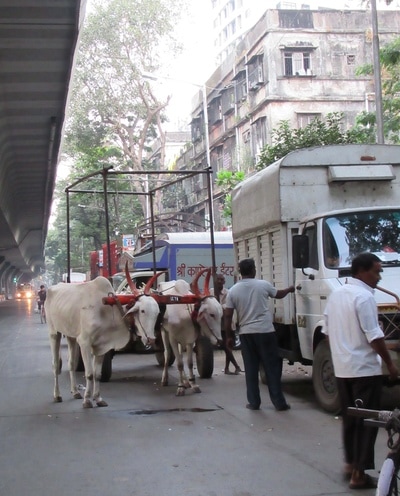
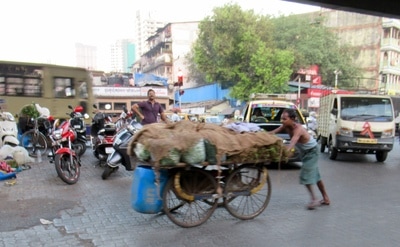
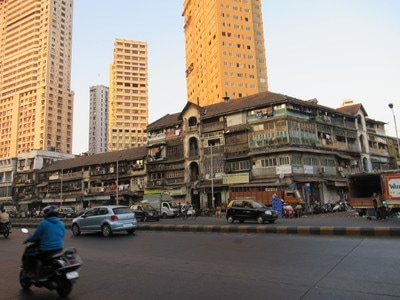
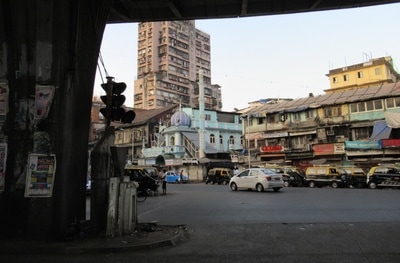
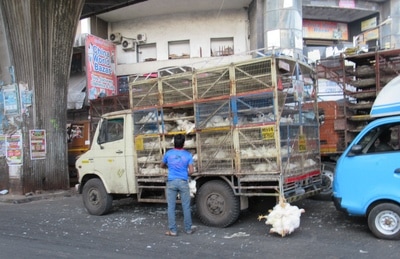
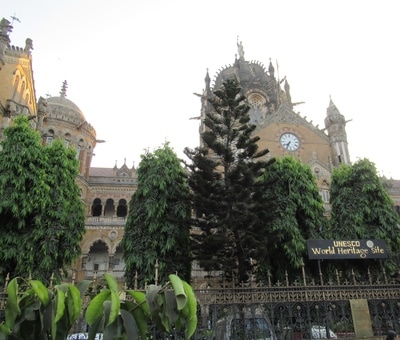
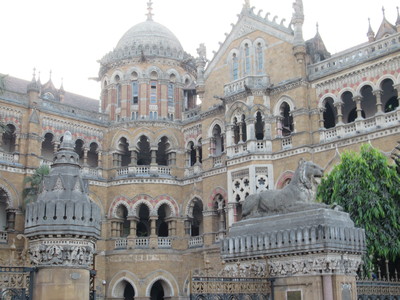
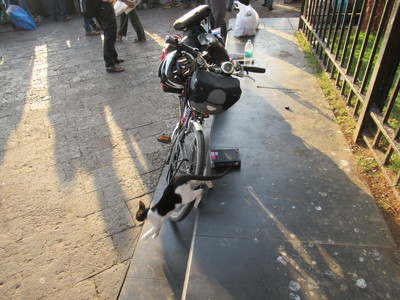
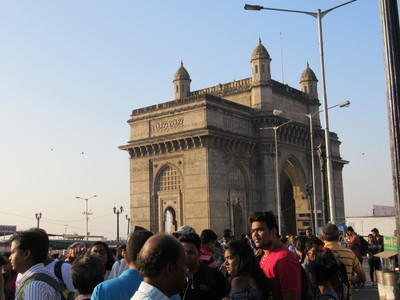
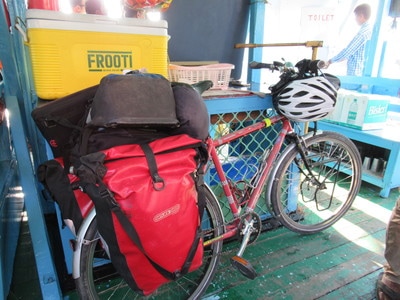
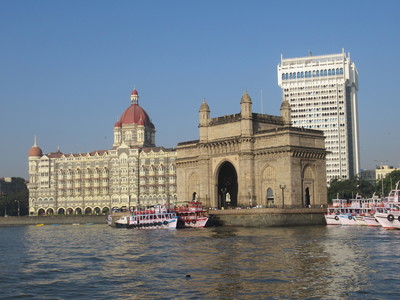
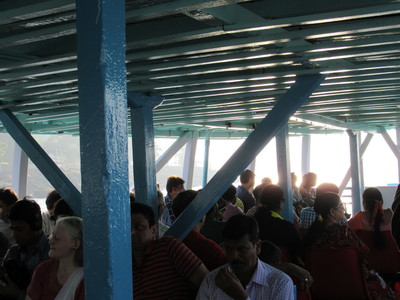
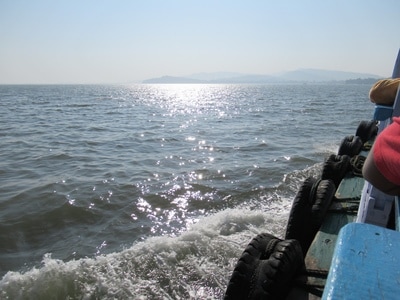
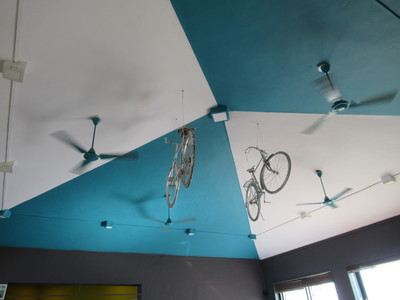
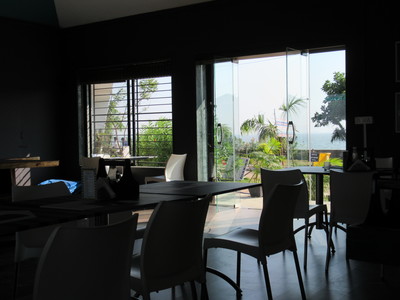
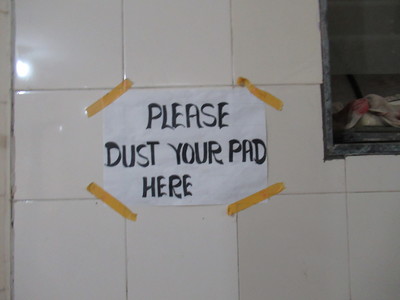
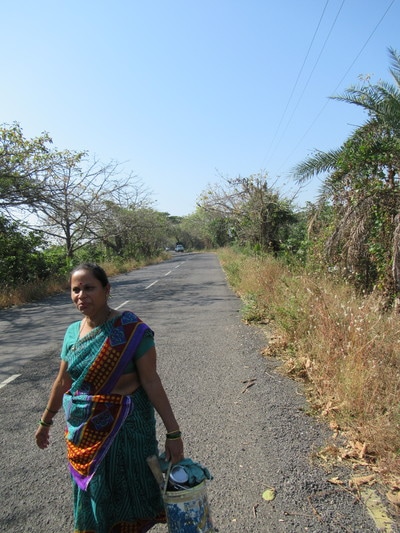
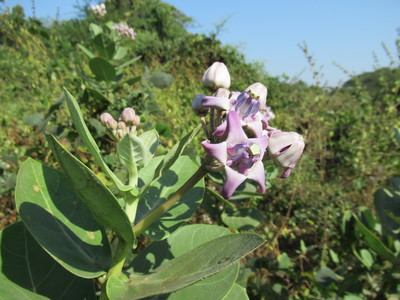
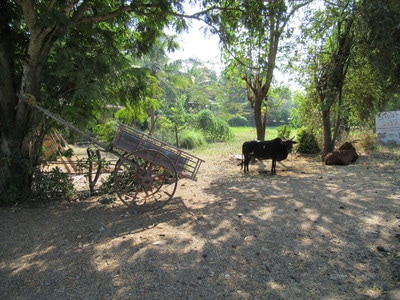
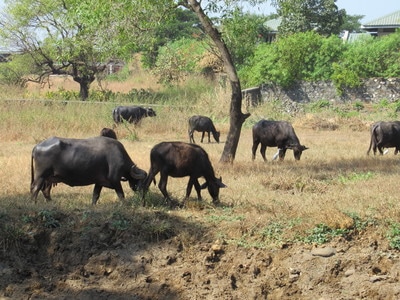
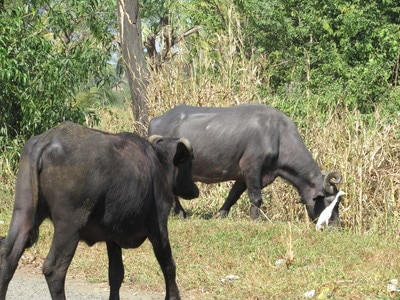
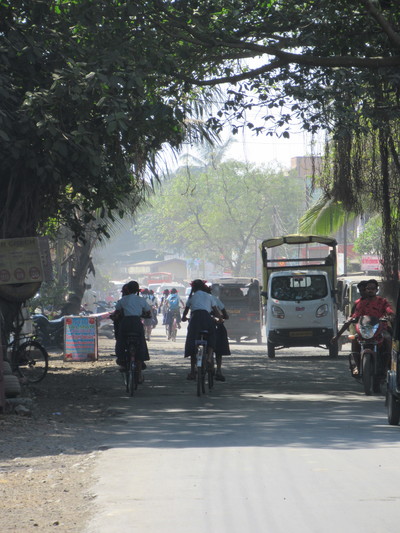
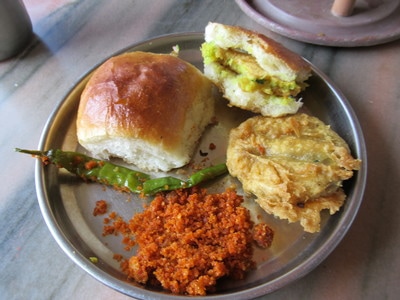
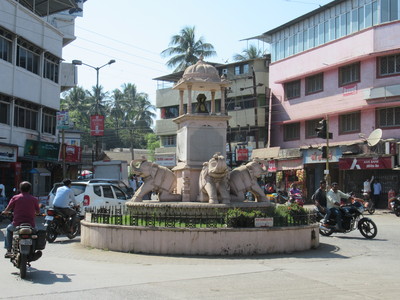
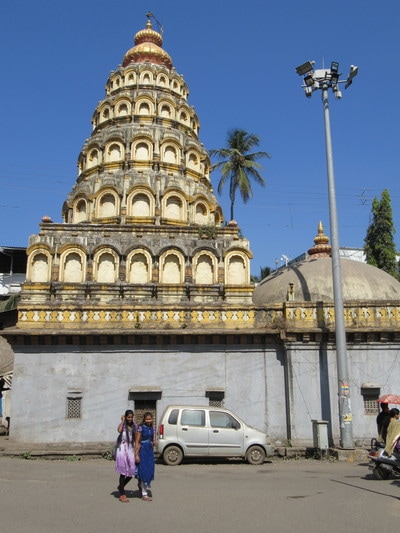
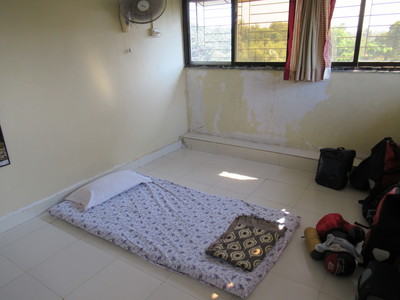
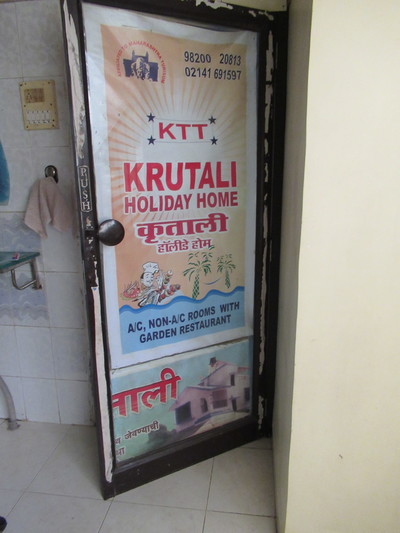
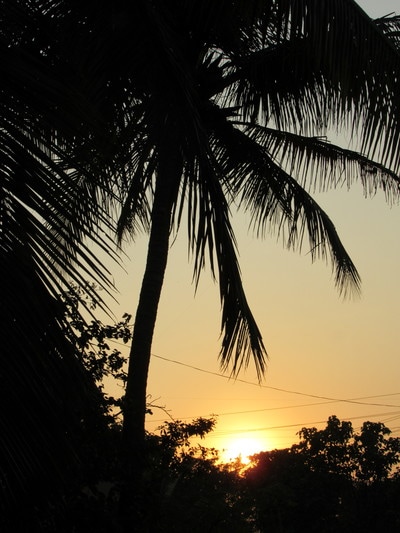
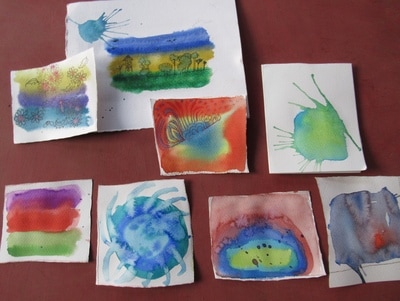
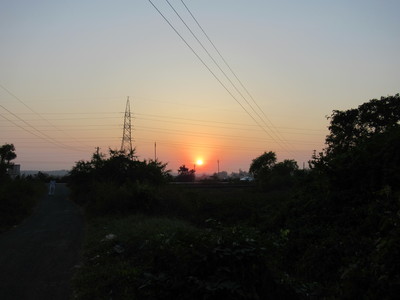
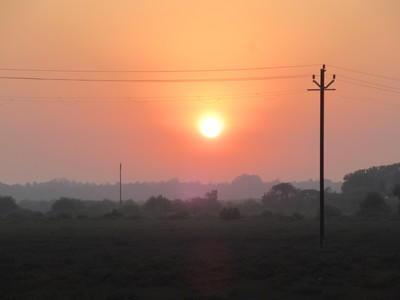
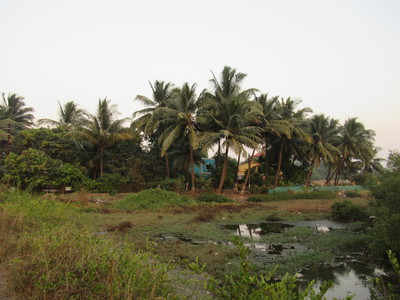
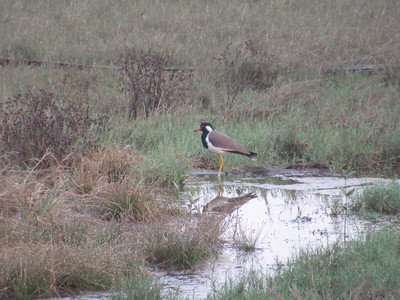
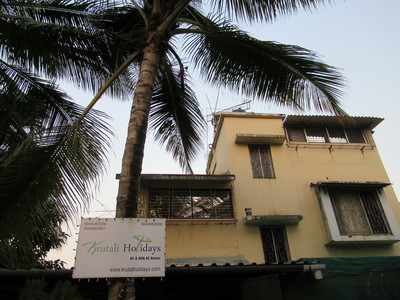
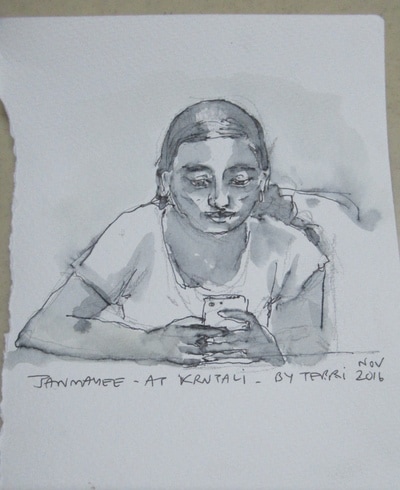
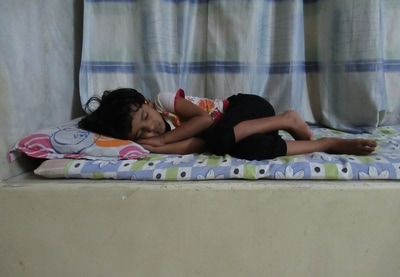

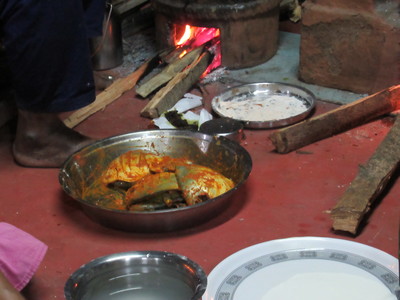
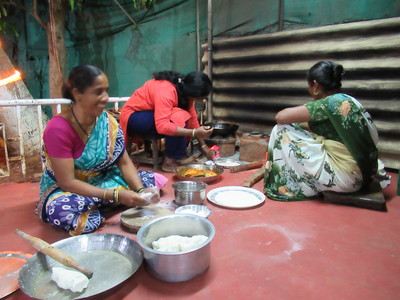
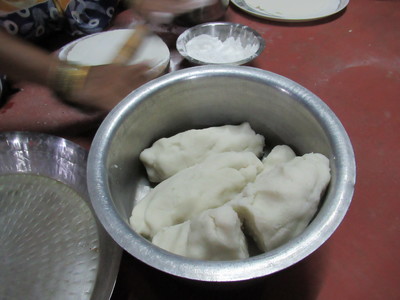
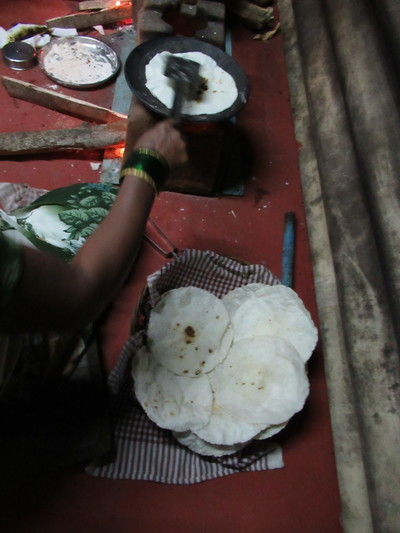
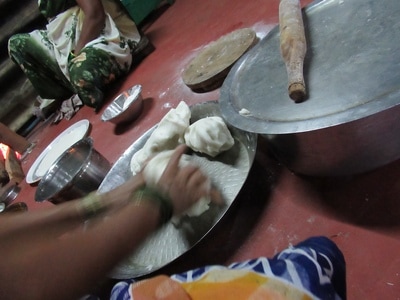
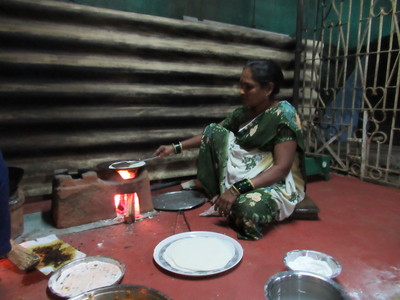
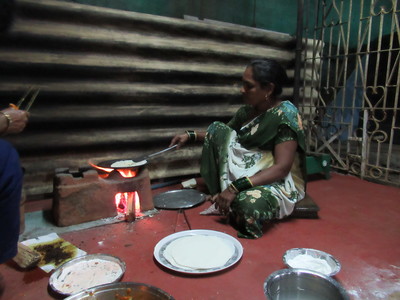
 RSS Feed
RSS Feed
